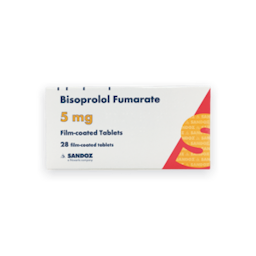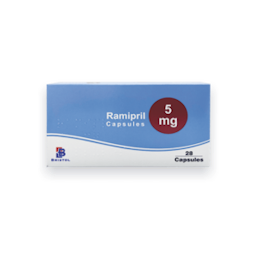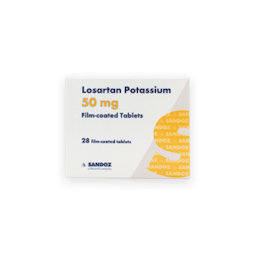High blood pressure (also known as hypertension) is a common health condition and, in the UK, one third of adults suffer from it – sometimes without even realising. High blood pressure often has no symptoms, yet it can increase your chances of having a heart attack or stroke.
If you suffer from high blood pressure, you might already be taking medication prescribed by your doctor – but there are many lifestyle changes you can make that may help too.
So, here’s everything you need to know about high blood pressure and how you can lower it naturally.
What is normal blood pressure?

Blood pressure is the measure of the force of your blood inside your arteries, and when the force is too high, it can weaken your heart and damage your arteries. This can increase your risk of heart attack, heart failure, stroke, and kidney disease.
Blood pressure is recorded using two numbers; both of which are measured in millimetres of mercury (mmHg). The systolic pressure is the higher number, and this represents the force with which your heart pumps blood around your body. The diastolic pressure is the lower number, and this represents the resistance to the blood flow in the blood vessels.
Normal blood pressure can vary from 90/60 to 120/80, and if your blood pressure is high (140/90 or more) for more than a few weeks, your doctor will likely diagnose you with high blood pressure and may recommend that you take medication. The easiest way to measure your blood pressure is to book an appointment at a pharmacy – you can find your nearest one on the NHS website.
You could also consider buying your own blood pressure monitor to keep an eye on it at home. Just make sure that it’s approved for use in the UK. The British and Irish Hypertension Society has a list of validated blood pressure monitors for home use here.
As well as taking medication, there are lots of things you can do to help lower blood pressure naturally. And even better, these steps will likely boost your overall health and fitness too.
Get high blood pressure prescriptions from Rest Less Online Doctor
Skip long waits for a doctor’s appointment. With Rest Less Online Doctor, you can access a range of high blood pressure treatments. Order online and you could receive your medication the next day.
Rest Less Online Doctor powered by evaro. Find out more.
10 natural ways to lower blood pressure
1. Maintain a healthy weight

Blood pressure tends to increase as weight increases, and if you’re overweight, losing even a small amount can make a difference. For each kilogram of weight an overweight person loses, they can reduce their blood pressure by about one millimetre of mercury (mmHg).
Aside from dropping any excess weight, it’s also a good idea to watch your waistline. The fat around our waist is called visceral fat and having too much of it can increase the risk of high blood pressure. Generally speaking, men should aim for their waist to measure less than 40 inches, and women for less than 35 inches.
To get some ideas for healthy meals and snacks, you may want to read our articles; 14 quick and healthy snack ideas and 12 healthy recipe ideas.
2. Exercise regularly

We all know that doing regular exercise is good for our health – and part of this is because it helps to lower blood pressure. When you exercise, your heart becomes stronger and better at pumping blood around the body, which helps to relieve pressure in your arteries.
Just 150 minutes of moderate exercise can be effective at reducing blood pressure and boosting heart health. According to research, exercising more than this will have an even greater effect.
You don’t have to run marathons or pump iron at the gym to see the benefits; moderate aerobic exercise like brisk walking, cycling, swimming, or dancing can all help. A study of sedentary older adults found that those who did moderate aerobic exercise lowered their blood pressure by 3.9% systolic and 4.5% diastolic on average – results that are just as good as blood pressure medications.
For inspiration on how to get active and increase your fitness levels, check out the fitness and exercise section of our website. You may also want to get involved in some virtual exercise classes over on Rest Less Events.
3. Reduce your sodium intake

Doctors generally advise that reducing your sodium (salt) intake is one of the most important ways to lower your blood pressure – and research suggests that a low-sodium diet can have the same effect as blood pressure medication.
Many studies show that there’s a link between high sodium intake and high blood pressure, as well as heart conditions and strokes.
If you have high blood pressure, you could cut back on salt and see if it makes any difference. Rather than buying ready-made meals which are often high in sodium, try making fresh food yourself, and seasoning dishes with herbs and spices instead of salt.
4. Eat a healthy whole food diet

Eating a fresh and healthy diet that’s low in saturated fat and cholesterol is also a good way to lower your blood pressure.
According to the NHS, a low-fat diet that includes lots of fibre (like whole grain rice, bread, and pasta), and plenty of fruit and vegetables, helps to lower blood pressure.
It’s also a good idea to cut down on processed foods that are high in salt, sugar, and refined carbs. Examples of these foods include deli meats, tinned soup, pizza, crisps, and other processed snacks. Foods that are branded as ‘low-fat’ are often high in both sugar and salt.
The DASH diet (Dietary Approaches to Stop Hypertension) is specifically tailored to lower blood pressure, and some of its main principles include limiting processed foods, reducing salt intake, and prioritising whole foods. You can find out more in our article; The DASH diet – what is it and what are the pros and cons?
Order repeat prescriptions online
Skip long waits for a doctor’s appointment. With Rest Less Online Doctor, you can access a range of high blood pressure treatments. Order online and you could receive your medication the next day.
Rest Less Online Doctor powered by evaro. Find out more.
5. Eat more potassium

While eating any foods that are rich in vitamins and minerals is a good idea, when it comes to lowering blood pressure, it’s especially helpful to make sure you’re getting enough potassium.
Potassium not only reduces the harmful effects of sodium in your body, but it also eases pressure in your blood vessels.
The best source of potassium is through food rather than supplements – and consuming around 3,500mg of potassium each day is recommended. However, if you suffer from kidney disease, it’s important not to ingest too much. So if you’re unsure, it’s best to speak to your GP about your optimum potassium level.
Fruits like bananas, apricots, avocados, tomatoes, melons, and oranges are all high in potassium, as are vegetables like potatoes, sweet potatoes, mushrooms, peas, leafy greens, and spinach.
For further guidance, check out our article; Everything you need to know about potassium.
6. Limit alcohol

Drinking alcohol in moderation isn’t usually problematic, but drinking too much can raise blood pressure. In fact, around 16% of high blood pressure cases are linked to excessive alcohol consumption.
Studies show that alcohol can raise your blood pressure by one mmHg for every 10g of alcohol consumed. When you bear in mind that an average alcoholic drink contains 14g of alcohol, this can have a significant effect.
Drinking more than 14 units of alcohol a week can have adverse effects on other areas of your health too. If you’d like to cut back on your drinking, you may want to read this advice from the NHS.
7. Stop smoking

While drinking alcohol in moderation is rarely problematic, smoking will always be harmful to your health.
Every cigarette you smoke causes a temporary spike in your blood pressure and stopping smoking can help your blood pressure return to normal. It can also reduce your risk of heart disease and improve your overall health.
Plus, the chemicals in tobacco are known to harm blood vessel walls – causing inflammation and narrowing your arteries – which leads to higher blood pressure. Studies show that even secondhand smoke can contribute to higher blood pressure.
8. Cut back on caffeine

If you’ve ever drunk coffee before you’ve had your blood pressure measured, you may already be aware that caffeine can cause it to instantly spike. The precise role caffeine plays in blood pressure is still debated, and it can have a different impact on different people.
Studies suggest that caffeine’s effect on raising blood pressure is more dramatic if your blood pressure is already high. However, more research is needed and there isn’t enough evidence to show that drinking caffeine can lead to a permanent increase in blood pressure.
Still, if you have high blood pressure or think you might be caffeine-sensitive, you may want to try cutting back to see if it makes a difference to your blood pressure.
For ideas for other drinks you can enjoy throughout the day, check out our article on making healthier drinks choices.
Frustrated with overpriced high blood pressure medication?
Skip long waits for a doctor’s appointment. With Rest Less Online Doctor, you can access a range of high blood pressure treatments. Order online and you could receive your medication the next day.
Rest Less Online Doctor powered by evaro. Find out more.
9. Reduce stress

Chronic stress is believed to be a cause of high blood pressure. When you’re stressed, your heart rate is higher and your blood vessels can become constricted. You might also be more likely to turn to other behaviours that can raise blood pressure further when stressed, like drinking more alcohol, smoking, or eating unhealthy food.
While it’s difficult to eliminate all stress from your life, try to identify the main causes. Then think about ways you can avoid, or better deal with, these triggers. Listening to soothing music has been shown to relax your nervous system, and studies show it’s a good complement to other blood pressure treatments.
For more information on dealing with stress, you might want to check out our articles; 7 tips for coping with stress and anxiety and 9 simple stress relieving activities.
10. Get more sleep

We’re only just beginning to understand quite how important sleep is for our health – and it can play a role in stabilising blood pressure too. When we’re sleeping, our blood pressure tends to dip, and studies show that if you don’t get enough sleep, you have an increased risk of high blood pressure.
According to research, regularly sleeping for less than four hours a night is linked to a significant risk in the long term. However, getting six to eight hours of restful sleep a night doesn’t only prevent blood pressure from rising but can also prevent it fluctuating, which can be just as dangerous.
If you feel like you struggle to get enough restful sleep, head over to the sleep and fatigue section of our website where you’ll find tips to improve your sleep and ways to beat insomnia.
Final thoughts…
Having high blood pressure can lead to various health problems and increase your chances of suffering from a heart attack or stroke. But the good news is that there are plenty of lifestyle changes you can make to lower it.
However, if you have concerns about your blood pressure, you should always speak to your GP as it might be that taking medication is the best step for you.
For more health information, why not read our articles; 5 tips to help lower cholesterol and 11 healthy heart tips?
Do you suffer from high blood pressure? Or do you have any of your own tips to reduce blood pressure? We’d be interested to hear from you in the comments below.


